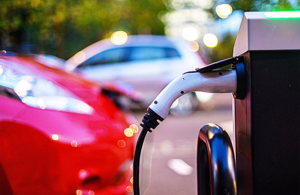The UK’s charging network has been given a huge boost today , as government unveils plans to support the UK market to reach 300,000 public electric vehicle (EV) chargepoints by 2030 – equivalent to almost 5 times the number of fuel pumps on our roads today.
Backed by £1.6 billion, under the Electric Vehicle Infrastructure Strategy, charging will become easier and cheaper than refuelling a petrol or diesel car, while new legal requirements on operators will see drivers of EVs able to pay by contactless, compare charging prices and find nearby chargepoints via apps.
The new strategy sets out the government’s aim to expand the UK’s charging network, so that it is robust, fair and covers the entire country – as well as improving the consumer experience at all chargepoints, with significant support focused on those without access to off-street parking, and on fast charging for longer journeys.
£500 million will be invested to bring high quality, competitively priced public chargepoints to communities across the UK. This includes a £450 million Local Electric Vehicle Infrastructure (LEVI) fund, which will boost projects such as EV hubs and innovative on-street charging, so those without driveways don’t miss out on cleaner transport.
A pilot scheme for the LEVI fund launching today will see local authorities bid for a share of £10 million in funding, allowing selected areas to work with industry and boost public charging opportunities.
Meanwhile, the LEVI funding includes up to £50 million to fund staff to work on local challenges and public chargepoint planning – ensuring that any development complements all other zero emission forms of travel, such as walking and cycling.
The existing £950 million Rapid Charging Fund will support the rollout of at least 6,000 high powered super-fast chargepoints across England’s motorways by 2035, ensuring the UK continues to lead the Western world in the provision of rapid and ultra-rapid public chargers.
This comes on top of ministers’ pledges to continue addressing any barriers to private sector rollout of chargepoints, such as local councils delaying planning permission and high connection costs.
Ambitious and innovative chargepoint operators are already committed to installing an additional 15,000 rapid chargepoints across England’s entire road network – a quadrupling of the current offer – and over 100,000 on-street chargepoints by 2025.
The government is mandating that operators provide real-time data about chargepoints. It is ensuring that consumers can compare prices and seamlessly pay for their charging using contactless cards. They will also be able to use apps to find their nearest available chargepoint.
These plans will also require a 99% reliability rate at rapid chargepoints to ensure they are world-class and give consumers confidence in finding chargepoints that work wherever they travel – helping eradicate so-called ‘range anxiety’.
Even with recent trends in electricity prices, EVs still benefit from lower fuel, running and maintenance costs than their petrol and diesel equivalents and the strategy hopes to encourage drivers across the nation to make the switch.
Production costs also continue to fall and some analysts expect purchase price parity with petrol and diesel cars to be reached well within the 2020s.







